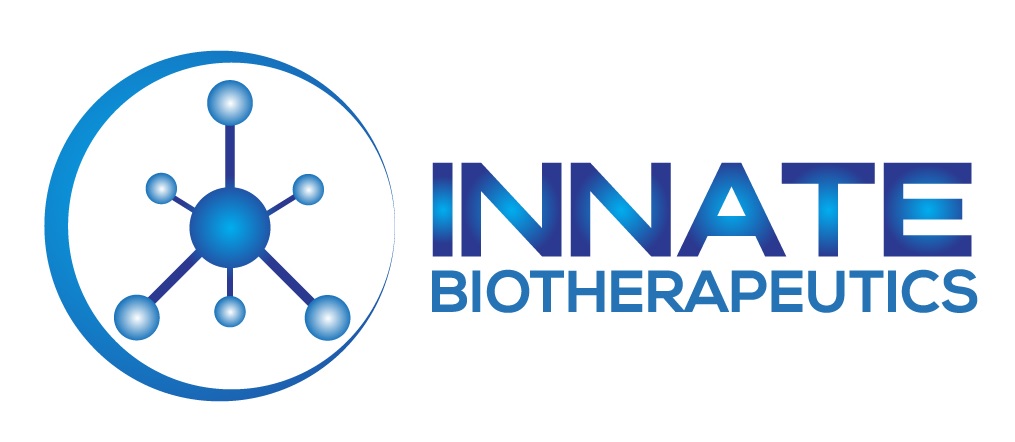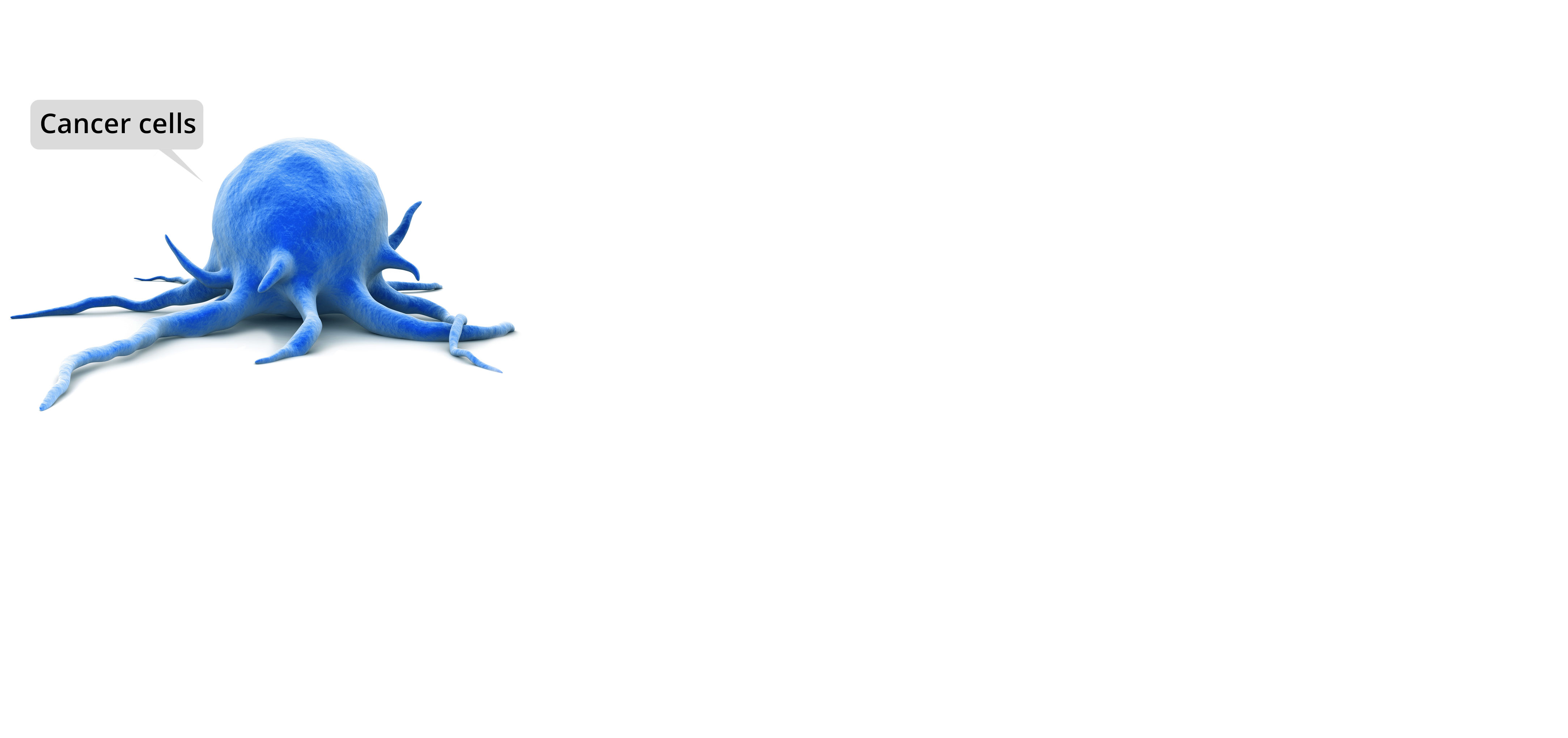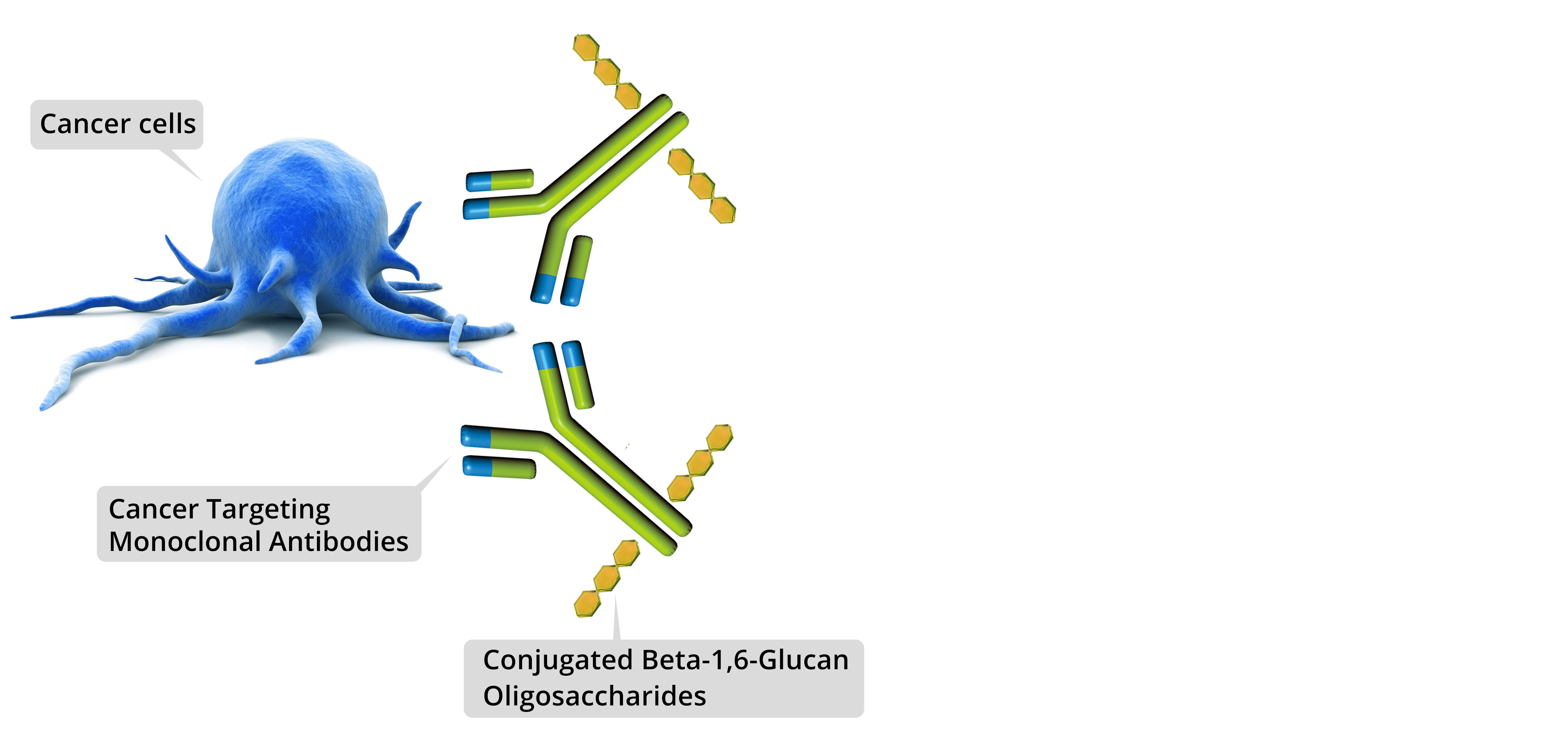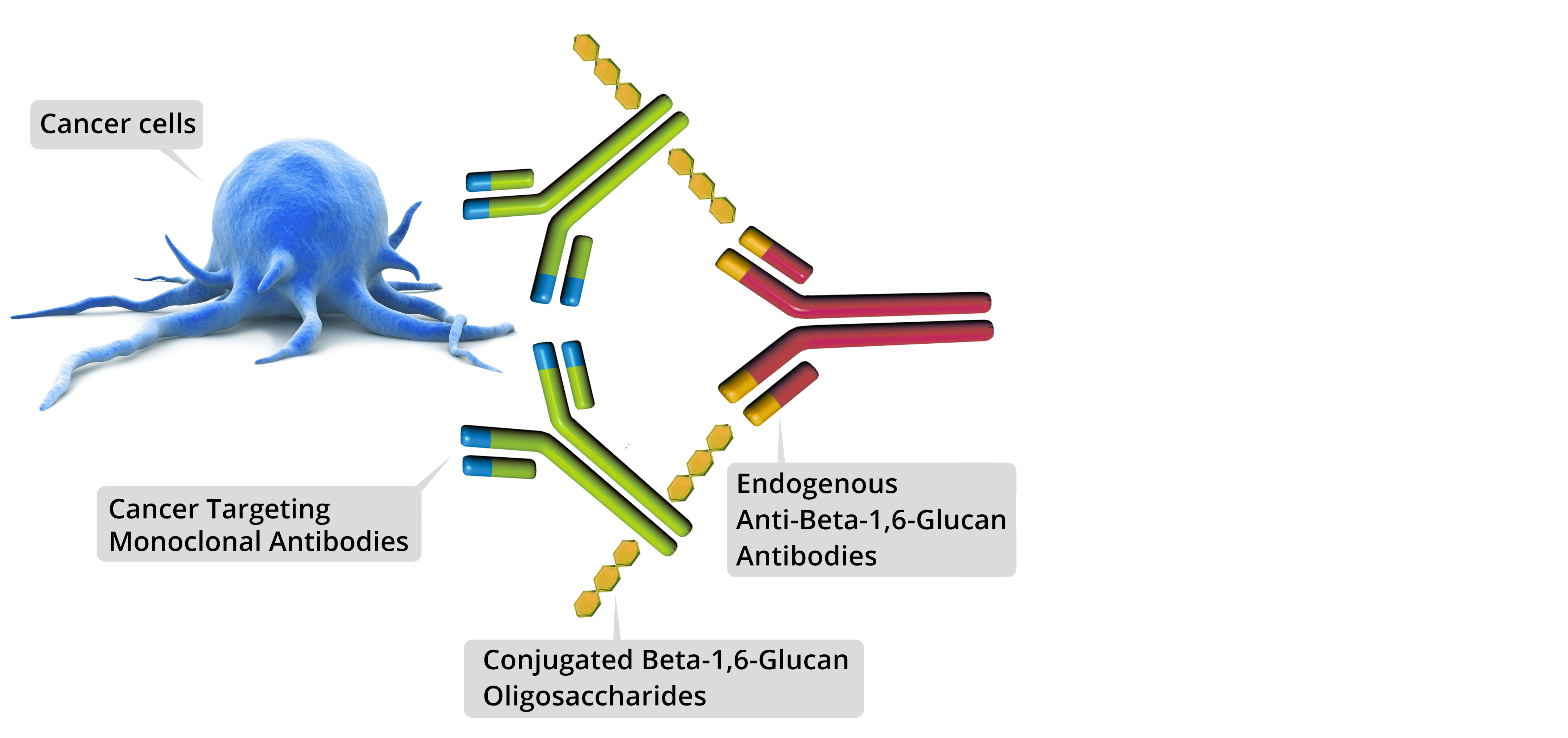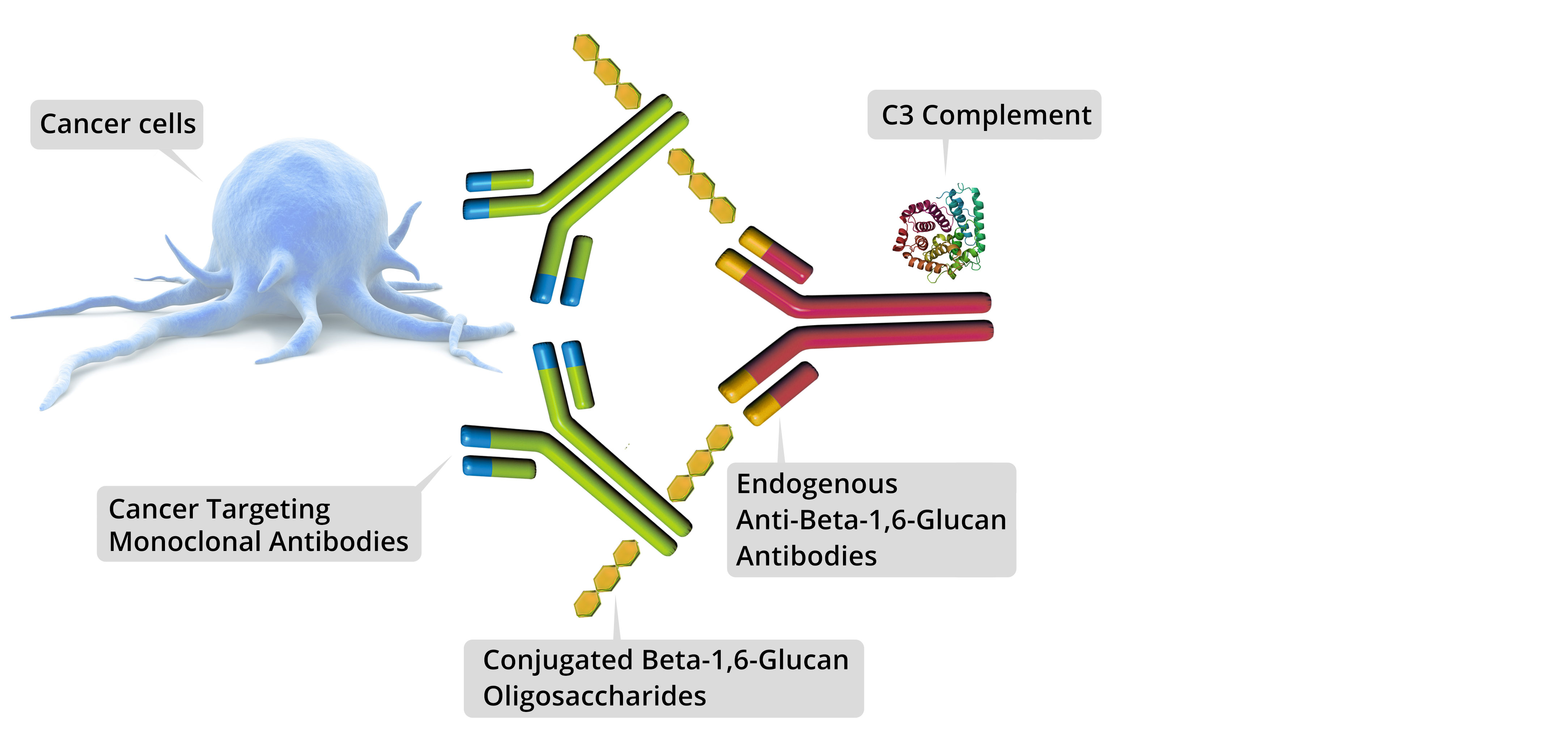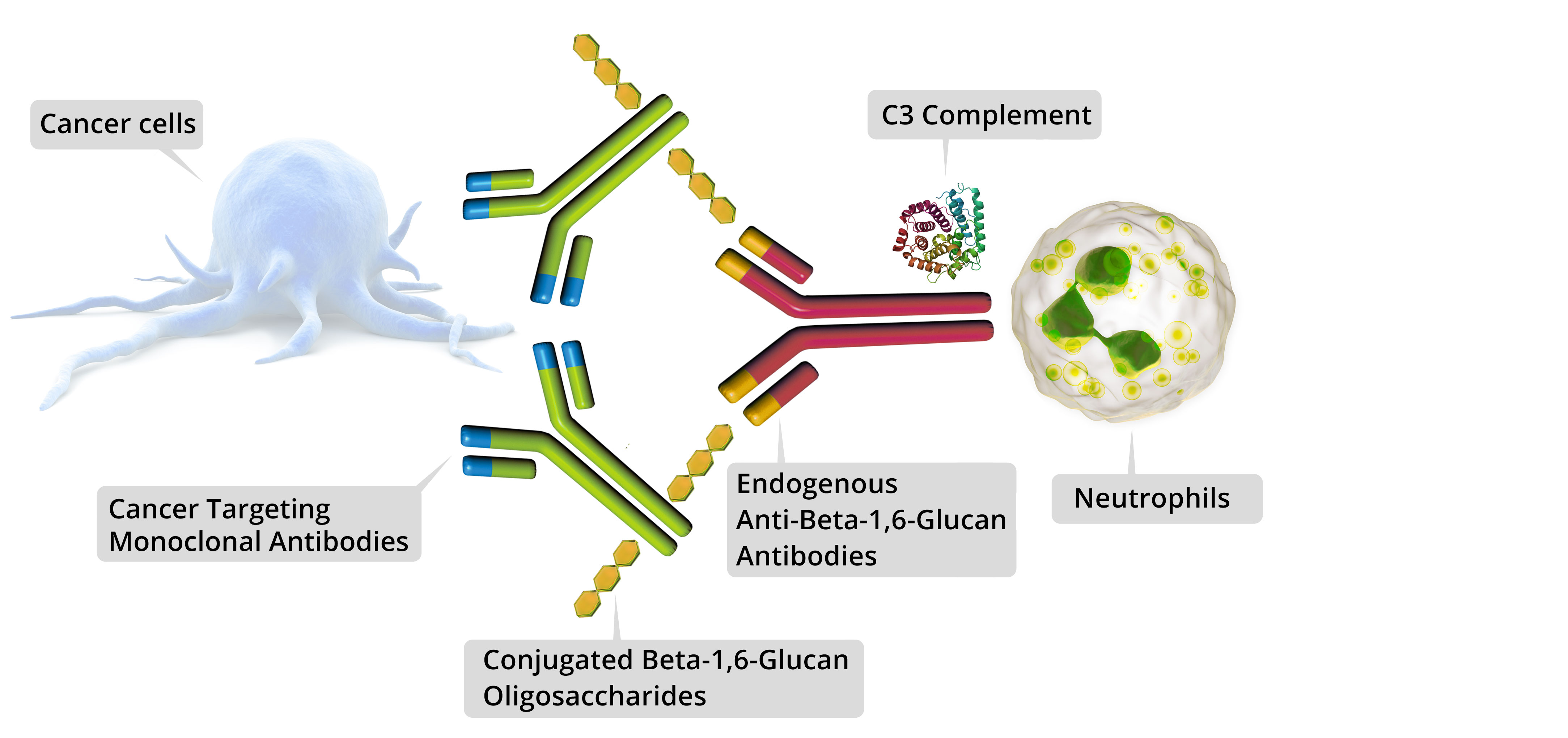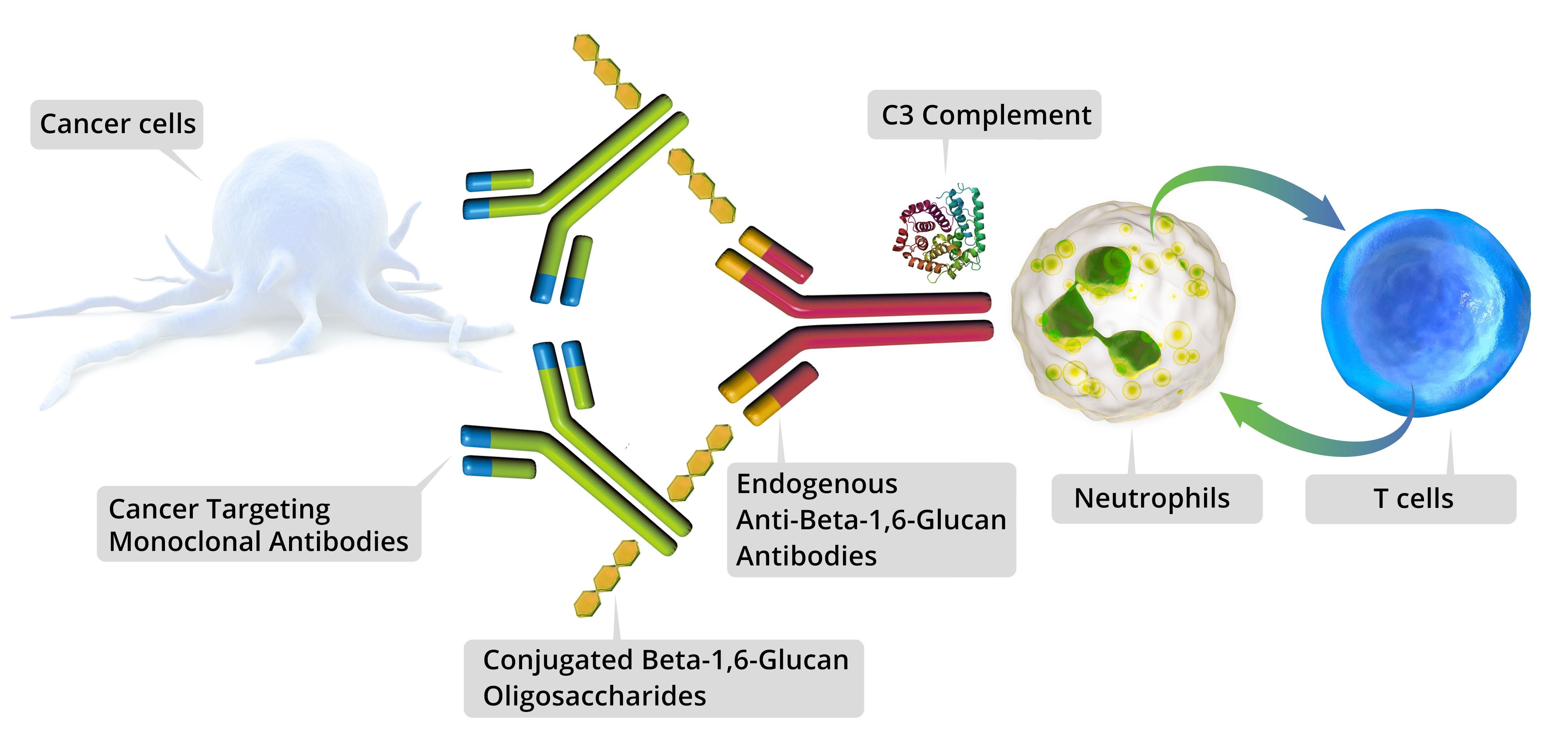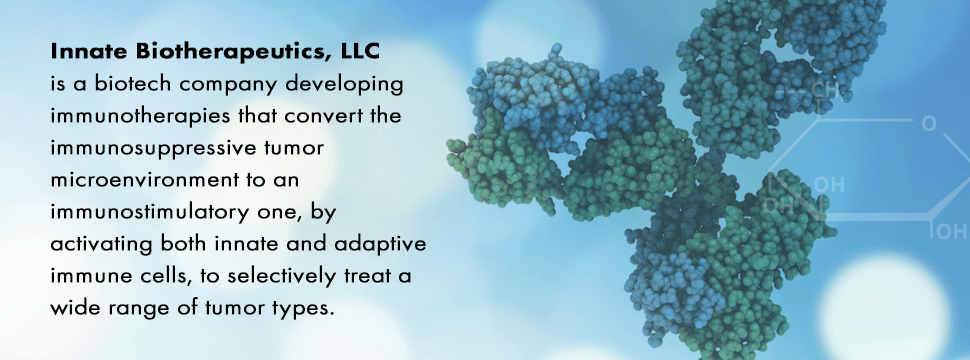
About Us
Innate Bio’s platform is based on an engineered fungal carbohydrate that stimulates the innate immune system—our body’s first response against fungal infections. These carbohydrates are covalently linked to tumor-targeting monoclonal antibodies, which attract pre-existing antibodies, activate the complement system, and ultimately recruit innate immune cells to kill the tumor cells. This innate immune response primes the natural adaptive immune response to convert the immunosuppressive tumor microenvironment into an immunostimulatory one and to eliminate tumor growth and metastasis. Innate Bio’s pre-clinical pipeline has the following advantages:
- A strong IP portfolio, including compositions and use claims
- Lead programs that have gone through optimization and extensive pre-clinical testing, including pilot toxicity in non-human primates
- Several compelling market opportunities in the cancer immunotherapy space, including targeting “cold” tumors, both as monotherapy and in combination with checkpoint inhibitors
Our Technology
While the field of immuno-oncology has historically focused on the adaptive immune system, Innate Biotherapeutics is executing a targeted approach that leverages the power of the body’s innate and adaptive immune systems to convert the immunosuppressive tumor microenvironment to an immunostimulatory one, in pursuit of a more effective treatments for cancer.
Innate Bio’s disruptive cancer immunotherapy that leverages both the innate and adaptive immune system, is based on research conducted at the Whitehead Institute of MIT. This research identified a unique fungal saccharide (beta-1,6-glucan) responsible for stimulating the innate immune system—the immune system’s first response against fungal infections.
Innate Bio’s antibody-beta-1,6-glucan conjugate technology has been applied to several monoclonal antibodies targeting cancer peripheral proteins. Cancer cells bound with these conjugates are essentially coated with the beta-1,6-glucan fungal saccharides, which signal fungal infection to the immune system. Specifically, anti-beta-1,6-glucan endogenous antibodies bind to the saccharides, and complement is deposited, releasing chemoattractants. This leads to the recruitment, binding, and activation of neutrophils that initiate an inflammatory response in the tumor microenvironment. This innate immune response sets off a cascade of both innate and adaptive immune response, culminating in the recruitment and activation of T-cells against neo-antigens, creating an long term memory effect.
Partnering
Innate Biotherapeutics, LLC is exploring a number of strategic partnerships to further advance its technology and programs.
The company’s proprietary product engine provides:
- A transformative immunotherapeutic approach to treating cancer
- An ability to treat a wide range of solid and liquid tumors
- A therapy that has shown efficacy as both a monotherapy and in combination with checkpoint inhibitors
- A simple targeted product that may not require chronic administration
- Straightforward development and manufacturing
- The potential to boost existing tumor-targeting antibodies’ efficacy and enable lifecycle management, providing compelling advantages for partners who have developed their own antibodies
If you are interested in learning more about Innate Biotherapeutics’ technology and programs, or discussing potential partnering opportunities, please contact us at: info@innatebio.com.
